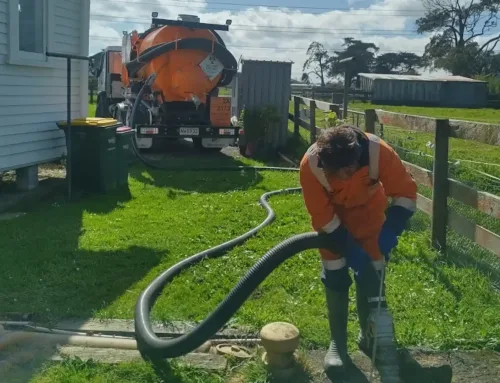Everything about Reclaim Waste
Everything about Reclaim Waste
Blog Article
Little Known Questions About Reclaim Waste.
Table of ContentsAbout Reclaim WasteThe Basic Principles Of Reclaim Waste The Ultimate Guide To Reclaim WasteThe Main Principles Of Reclaim Waste The Single Strategy To Use For Reclaim Waste
Explore the kinds, events, and types of liquid waste. Residential sewage waste describes the waste and products from a residential septic container. This sort of waste is created by human beings in houses, schools, and various other buildings. This only consists of sewage-disposal tanks that have a drainpipe field. The correct administration and disposal of residential sewer waste call for liquid waste to be moved to a sewage therapy plant where the proper techniques and equipment are used to detoxify and take care of waste.
Industrial waste commonly includes potential threats, such as combustible products or a blend of liquid and solid waste products, and calls for an advanced and comprehensive disposal process. The disposal of industrial waste commonly involves the purification of waste prior to transport to make sure safe and correct disposal. Hazardous waste is produced from results and drainage of commercial processes and production.
This sort of waste can not use the same sewer management transportation or procedures as septic or business fluids. The commercial waste administration process requires the evaluation and testing of liquid waste prior to it undertakes the disposal procedure (liquid waste removal). Drainage waste is the liquid waste that comes from runoff and excess stormwater in highly booming locations or cities
Drainage waste can create contamination and flooding otherwise handled correctly. Find out extra regarding sewage system cleansing and waste administration. Making certain proper waste monitoring can protect against catastrophes and lower environmental harm. Both individuals in domestic setups and specialists in industrial or manufacturing sectors can gain from understanding the processes and regulations of liquid waste monitoring.
Reclaim Waste Fundamentals Explained
Get in touch with PROS Solutions today to learn more about our waste monitoring and disposal services and the proper means to take care of the liquid waste you generate.
(https://www.gaiaonline.com/profiles/reclaimwaste1/46907679/)This so-called 'wastewater' is not just an important source but, after therapy, will be released to our land, waterways or the sea. Made use of water from toilets, showers, baths, kitchen sinks, washings and industrial processes is known as wastewater.

water made use of to cool down equipment or clean plant and equipment). Stormwater, a kind of wastewater, is overflow that moves from farming and urban areas such as roofs, parks, yards, roads, courses and gutters right into stormwater drains, after rain. Stormwater moves unattended directly to neighborhood creeks or rivers, eventually getting to the ocean.
Little Known Questions About Reclaim Waste.
In Queensland, the majority of wastewater is treated at sewage therapy plants. Wastewater is transported from domestic or commercial sites with a system of drains and pump stations, referred to as sewerage reticulation, to a sewer therapy plant. Neighborhood federal governments build, maintain and operate most sewage therapy plants. Operators are certified under the Environmental Management Act 1994 to discharge cured wastewater at an appropriate environmental standard right into waterways.
The Division of Natural Resources encourages regional governments about managing, operating and maintaining sewage systems and therapy plants. In unsewered locations, city governments might require owners to install private or household sewer treatment systems to deal with residential wastewater from bathrooms, cooking areas, washrooms and laundries. The Division of Natural Resources authorises the use of house systems when they are proven to be efficient.
In some brand-new communities, treatment of some stormwater to remove clutter, sand and gravel has started making use of gross toxin catches. Wastewater therapy happens in four stages: Removes strong issue.
Makes use of small living organisms recognizes as micro-organisms to damage down and eliminate staying liquified wastes and fine fragments. Micro-organisms and wastes are incorporated why not check here in the sludge.
Reclaim Waste - Questions
Nutrient elimination is not readily available at all sewer therapy plants since it requires pricey specialist equipment. Clear fluid effluent generated after therapy might still have disease-causing micro-organisms - liquid waste disposal melbourne.

This usually suggests wastewater has to be treated or pollutants eliminated before it can be discharged to rivers. The majority of wastewater streams into the sewerage system. Under the Act, city governments provide approvals and licences for ecologically relevant tasks (ERAs) entailing wastewater launches that may have a local impact. The division provides authorizations and permits to Ages including wastewater launches that may have a regional or statewide effect.
The Only Guide to Reclaim Waste
Or else, samples are considered lab analysis. Usually several tests are needed to establish the degrees of each of the different contaminants such as oils, heavy metals and pesticides in water. Tracking supplies valid information regarding water top quality and can confirm that licence problems are being met. The info acquired through tracking supplies the basis for making water quality choices.
Report this page